Neil Kinnock
description: a British Labour Party politician who served as the Leader of the Labour Party from 1983 to 1992
74 results
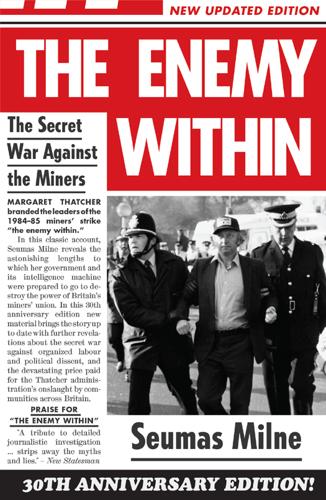
The Enemy Within
by Seumas Milne · 1 Dec 1994 · 497pp · 161,742 words
the twenty-fifth anniversary. From Thatcher’s close ally Norman Tebbit, who recalled the strike as a ‘war on democracy’, to the former Labour leader Neil Kinnock, who was still denouncing the miners’ leaders’ ‘madness’, to the BBC broadcaster Andrew Marr, who blamed Scargill’s ‘incompetence’ for coal’s early demise, an
…
to regard Scargill – acknowledged in the City of London to be a significant turn-off for potential buyers – as a malign influence from the past. Neil Kinnock, who later described how he had felt impotent and humiliated during the 1984–5 strike, saw the miners’ leader and all he represented as a
…
, ‘show a discrepancy of around £1 million. No one is saying what happened to the missing money.’ The story was written by Alastair Campbell – then Neil Kinnock’s closest friend and ally in Fleet Street, later Tony Blair’s press secretary – while the main source for the British end of the tale
…
receiver Michael Arnold weighed in to declare the NUM leaders’ actions at least a breach of trust, at worst ‘a criminal act’. The Labour leader, Neil Kinnock, was joined by Norman Willis, the TUC general secretary, in demanding a full public inquiry into the ‘extremely serious’ allegations. Kinnock’s two closest parliamentary
…
president’s internal enemies made it abundantly clear that they would fight tooth and nail against any cash backing for a libel case. Kevin Barron, Neil Kinnock’s closest ally on the executive, wanted an inquiry under Labour Party and TUC control. Almost the entire executive opposed funding a libel action. ‘You
…
the world – as an organization whose ‘main purpose seems to be the furthering of Scargill’s political ambitions’. Kim Howells and Kevin Barron, two of Neil Kinnock’s closest allies in parliament, were conjured up to reinforce the political message. The IMO, Howells insisted, had been a ‘total failure … a Mickey Mouse
…
he branded the TUC’s retreat from its earlier commitment to the repeal of anti-union legislation a ‘betrayal of principle’. And the Labour leader Neil Kinnock – most of whose finest hours with the media consisted of outbursts against his own side – took the opportunity of his congress address to join the
…
because of ‘conflicting evidence’. Butler said more bluntly: ‘I do not think the NUM would have come out of a court action favourably.’ Kevin Barron, Neil Kinnock’s ally and Labour’s coal spokesman, demanded that Scargill resign and stand for re-election ‘in view of the situation he has brought the
…
should imagine that the Labour hierarchy was at all concerned that the allegations it had thrown its weight behind had now proven to be false, Neil Kinnock was there to present the prizes.51 AN ERROR OF JUDGEMENT The criminal prosecution of Scargill, Heathfield and the NUM by the Certification Officer over
…
the end of the strike. The Labour Party and TUC hierarchies tripped over each other to denounce any association with the ‘odious tyranny’ in Tripoli. Neil Kinnock, the Labour leader, declared: ‘The Gaddafi regime is vile. Any offers from them would be an insult to everything the British labour movement stands for
…
in March 1985, the gloves came off as the union machines in the historically most left-wing areas formed a common front with the right. Neil Kinnock and his ‘realigned’ supporters in the Labour Party made little attempt to disguise their active support for the internal opposition to Scargill. Pete Carter, the
…
with it in the appropriate way.’ As soon as he put the phone down, Windsor called Dalyell at Westminster. Curiously, he left his message with Neil Kinnock’s office, rather than with the House of Commons answering service. It was Charles Clarke, the Labour leader’s chef de cabinet, who handed Dalyell
…
friends like these, the opportunities for manipulating Labour politicians have plainly been many and varied.36 By the time of the Scargill Affair in 1990, Neil Kinnock had spent seven years straining to shift the labour movement to the right and was widely considered by the pundits and spin-doctors to be
…
with so dramatically three years earlier and which he was determined to see utterly marginalized under his stewardship of the party.37 The importance that Neil Kinnock attached to the place of the NUM and the miners’ strike in his nine years as Labour leader was bizarrely illustrated in an interview he
…
progressively more sycophantic to the hierarchy as time passed. ‘Maxwell saw the Mirror as simply a Labour Party organ that should publish smiling pictures of Neil Kinnock and laudatory articles,’ Pilger comments. ‘Before Maxwell, the Mirror never used to do that.’44 Maxwell also provided some financial support to a party with
…
George Galloway in the mid 1980s. The satirical magazine Private Eye published a story in the summer of 1985 alleging that Maxwell had paid for Neil Kinnock’s travel expenses on a trip to Africa in the hope of acquiring a peerage. The source of the story – though it was never revealed
…
Labour leader already knew all about them when he first arrived to take over the editorship at the beginning of February. Alastair Campbell told me Neil Kinnock was already fully informed and was neutral on the subject – in other words, he wanted to see it in print. He wasn’t neutral in
…
flunkeys were despatched to brief the slavering press with the appropriate spin. ‘There was no collusion’, a Labour Party ‘source’ was quoted as saying. ‘But Neil Kinnock will not have lost any sleep over what happened last week. The NUM strike was a major diversion and probably set back the Kinnock project
…
of the NUM, where he became press spokesman during the 1984–5 strike. Both Barron and Howells were politicians whose political advancement owed everything to Neil Kinnock’s patronage. Both were one-time would-be revolutionaries who had been busy working their passage back to labour-movement respectability throughout the second half
…
-leadership group’ and grumbling about their support for an amnesty for miners victimized by the Coal Board during and after the strike. Within two weeks, Neil Kinnock had rewarded him handsomely. The one-time Scargillite and NUM-sponsored MP became the leader’s own parliamentary private secretary. Wiping away the dust of
…
let it be known that the cautious Capstick’s real crime was ‘Scargillism’.62 Two weeks later, Robert Maxwell was dead. And the following spring Neil Kinnock’s New Model Labour Party went down to humiliating defeat at the 1992 general election. Scargill once again tried to persuade the Mineworkers’ Pension Scheme
…
‘readdressed’ to an account in Nell Myers’ name in Dublin, which would be used ‘only for NUM needs’. The NUM president was also quoted attacking Neil Kinnock’s leadership of the Labour Party. Since 1991, the original has been lodged in the Central Committee archive under the control of the Russian government
…
see Scargill as he saw himself: the only one in all that multitude who dared to stand and fight against the evil of Thatcherism.9 Neil Kinnock’s courtiers lost no opportunity to tighten Scargill’s rack in the service of their much-vaunted – but little-availing – ‘new realism’. The speed and
…
. Adeney and Lloyd, The Miners’ Strike, p. 291. 38. Daily Mirror, 13 April 1984; Daily Mail, 29 June 1992. 39. Robert Harris, The Making of Neil Kinnock, London 1984, p. 164. 40. Heffernan and Marqusee, Defeat from the Jaws of Victory, pp. 48–61; Peter Wilsher, Donald Macintyre and Michael Jones, Strike

A Classless Society: Britain in the 1990s
by Alwyn W. Turner · 4 Sep 2013 · 1,013pp · 302,015 words
professed belief and practical expression to hypocrisy, others who saw the problem as being a lack of credibility on the part of the Labour leader, Neil Kinnock. But surprisingly few were prepared to give much credit to John Major, the successor to Thatcher, who had softened the harsher edges of her policies
…
become the norm, and it was more important for him to emphasise his record in government, in contrast to that of the two opposition leaders – Neil Kinnock and Paddy Ashdown – though both were older than he was. That record, however, was so compressed that it resembled a crash course in statesmanship. Major
…
public image of the man so that when, in 1992, someone drew a Hitler moustache on a portrait of Thatcher in the House of Commons, Neil Kinnock could joke on Have I Got News for You: ‘Next week they’re going to colour in John Major.’ He was by common consensus dull
…
from Oliver! – ‘Who will buy my sweet red roses?’ and ‘You’ve got to pick a pocket or two’ – while suggesting that the opposition leader, Neil Kinnock, was a dead ringer for the Artful Dodger. It was rare for a report of a Heseltine speech not to use the word ‘bravura’, and
…
small lead, it was far from consistent, and while Major’s personal ratings were far in advance of those of his party, Labour’s leader, Neil Kinnock, continued to underperform his. There was a danger that the public mood for change, inevitable after Thatcher’s long period in office, might have been
…
comment was perfectly sound. ‘What he meant was this: too often Labour leaders in the past have not faced up to the difficult arguments. Well, Neil Kinnock would rather face up to the practicalities with honesty and conviction before we go into government.’ There was reason and history behind that account, but
…
choir. All of which was a way of working the 10,000-strong audience up into a frenzy ready for the arrival on stage of Neil Kinnock, just in time for the BBC television news at nine o’clock. And frenzy did indeed seem to be the keynote. Jack Straw, the shadow
…
that they would make no deal, but Labour was less rigid and some leading figures allowed themselves to be drawn into talk about coalitions, while Neil Kinnock floated the idea of inviting other parties into a discussion of electoral reform. The effect was that Labour suddenly looked as if they lacked self
…
substantial move towards the Conservative cause. By the end of the night, it had become apparent that it was all over for Labour and for Neil Kinnock. The Conservatives had recorded 14.1 million votes, the largest endorsement ever achieved in Britain and, though their share of the vote was lower than
…
Labour leadership’s immediate response was more defensive, finding a scapegoat in the shape of the tabloid newspapers. In the wake of the election defeat, Neil Kinnock announced that he was stepping down as Labour leader, and in his resignation speech he drew attention to an article by the Conservative Party’s
…
a crucial role in the 1992 election. Consequently, he took great care to court the paper’s proprietor, Rupert Murdoch, much to the fury of Neil Kinnock, who was still nursing his wounds years later. ‘You imagine what it’s like to have your head stuck inside a fucking light bulb, then
…
something or other’. Smith even managed to do his job without benefit of a personal press officer. The focus groups and private polling, on which Neil Kinnock had come to rely so heavily, mostly melted away, and the ceaseless quest for new, middle-of-the-road policies came to an end. The
…
, but the idea that he might not become prime minister had surfaced in various forms throughout his tenure of the Labour leadership. Bryan Gould remembered Neil Kinnock telling him in 1992 not to stand against Smith, but to keep his powder dry: ‘He won’t last the course. It’s important that
…
high as they could possibly be. It had long been accepted that there was one outstanding candidate for the job. ‘Until the 1992 election,’ said Neil Kinnock, ‘my assumption had been that if we had formed the government in 1992 my successor would be Gordon, and if we lost the election then
…
four abstained, though the vote passed in the absence of Labour opposition. (It was, jibed Ken Livingstone, ‘An issue of such vital historic significance that Neil Kinnock gallantly led the Labour Party into a fighting abstention.’) At the beginning of June, things took a turn for the worse, as far as the
…
young MP in 1971 he had defied the party whip in the vote on joining the EEC, following Roy Jenkins into the Yes lobby. Unlike Neil Kinnock, he couldn’t be accused of selling his principles for political advantage. Nor was the party’s position truly a sign of opportunism, but rather
…
again by the Sun in 1995, and he made no secret of his homosexuality in his everyday life. ‘I know he’s that way,’ worried Neil Kinnock in the 1980s, ‘but why does he have to flaunt it?’ But Mandelson had never made any public comment or declaration on the subject and
…
body was found floating off the Canary Islands, after he fell – or possibly jumped – from his yacht. ‘This is truly tragic news,’ lamented Labour leader Neil Kinnock. ‘Bob Maxwell was a unique figure who attracted controversy, envy and loyalty in great measure throughout his rumbustious life.’ After Maxwell’s death, it emerged
…
was still the leader and was content to continue ploughing a more traditional furrow. There was a sense that Clinton was doing little more than Neil Kinnock had tried, chasing after focus groups and attempting to tailor policy to the supposed middle ground. ‘All the ideas from Clinton are an elite few
…
political animosities. Unusually for Labour, Blair became leader as the head of a clearly defined faction. Previously, figures such as Harold Wilson, Michael Foot and Neil Kinnock had been associated with the left, Hugh Gaitskell, James Callaghan and John Smith with the right, but all were broadly acceptable to most sections of
…
hostility of parts of the media, it was hard to see any alternative.’ Lessons had been learnt from the way in which Michael Foot and Neil Kinnock had been destroyed by the press, and there was a determination that nothing of the sort should happen again. Part of the answer was the
…
in 1996 – but many comrades of longer standing weren’t enthused to the same degree. The openly expressed admiration of Thatcher alienated traditionalists, who shared Neil Kinnock’s feelings: ‘That woman fucking killed people.’ And the distrust wasn’t confined to the left. ‘They all loathe Blair,’ wrote Tony Benn of the
…
-wing policies, to high taxes and high levels of spending, because he wasn’t really convinced of the need to change; he was, in effect, Neil Kinnock in middle-England clothing. But others, including the more astute Chris Patten, recognised that Blair represented a genuinely new political force and argued from the
…
‘a monopoly of patriotism’, in the words of David Owen. ‘When you see Mrs Thatcher’s kind of Tories wrapping themselves in the flag,’ remarked Neil Kinnock, ‘it does make you very suspicious when they have done so much damage to people who live under it.’ Exactly the same charge was made
…
party, not least by Peter Mandelson, who took every opportunity to place them on view in the media. Both men voted for the fashionable candidate, Neil Kinnock, in the leadership election held shortly after their arrival in the Commons, and both threw themselves into the campaign to ditch the left-wing image
…
crucial proclamation came a few moments later: ‘We have been elected as New Labour and we will govern as New Labour.’ An inadvertent echo of Neil Kinnock at the Sheffield rally in 1992 (‘We will govern as we have campaigned’), as a statement of intent this related to style more than it
…
, initially at least, was the figure who attracted the greatest public and press attention. He had been instrumental in the creation of New Labour, assisting Neil Kinnock’s repositioning of the party as well as playing a central role in Blair’s election as leader. Never entirely satisfied with a position of
…
for inflation, have been £4.06. On this measure, therefore, there had been a 12 per cent devaluation in Labour aspirations since the days of Neil Kinnock. The Low Pay Commission suggested that the figure should be set at £3.75, a proposal that, according to Alastair Campbell, infuriated Blair: ‘He was
…
public standing. It was hard to forget, however, that more recently Blair had been amongst those vainly urging John Smith to lead a mutiny against Neil Kinnock, and that Blair and Peter Mandelson were then chiefly blamed for trying to undermine Smith once he became leader. Loyalty to the party, never Blair
…
Cavan and the Rhythm Rockers. A tighter focus developed in the 1990s with the success of the Manic Street Preachers, who came from Blackwood in Neil Kinnock’s constituency. Their Welsh identity, proclaimed on stage with the display of the national flag, became more marked as their career progressed: their album This
…
had lived in London in the 1980s, was fearful of bad publicity arising from any association with Labour from that time (he’d already ensured Neil Kinnock’s absence from domestic politics by nominating him as a European commissioner), but he claimed that the main objections to the idea of Livingstone being
…
’s administration, lingered on. Blair’s personal rating at the height of the crisis fell to minus 34, the lowest for a Labour leader since Neil Kinnock in 1989. Comparisons with the latter days of Thatcher seemed ever more apposite. ‘I don’t know why they don’t like me,’ she had
…
had looked, at the time of his election as leader, as if he might be the Tory Michael Foot, he had ended up more like Neil Kinnock in 1987, ensuring the survival of a party that might have disappeared entirely into history. That, however, was clutching at Westminster straws. And the real
…
, Danziger’s Britain: A Journey to the Edge (HarperCollins, London, 1996) John Diamond, Snake Oil and Other Preoccupations (Vintage, London, 2001) G.M.F. Drower, Neil Kinnock: The Path to Leadership (Weidenfeld & Nicolson, London, 1984) Niall Edworthy, The Second Most Important Job in the Country (Virgin, London, 2000) Larry Elliott & Dan Atkinson
…
a 1992 poster. Getty Images 2. John Major visits British troops in the Gulf after the Kuwaiti War, 1991. A year later, his Labour rival, Neil Kinnock, addresses the pre-election Sheffield Rally. Mirrorpix 3. The advent of the new lad is proclaimed in Loaded magazine and the sitcom Men Behaving Badly
…
a 1992 poster. Getty Images 2. John Major visits British troops in the Gulf after the Kuwaiti War, 1991. A year later, his Labour rival, Neil Kinnock, addresses the pre-election Sheffield Rally. Mirrorpix 3. The advent of the new lad is proclaimed in Loaded magazine and the sitcom Men Behaving Badly
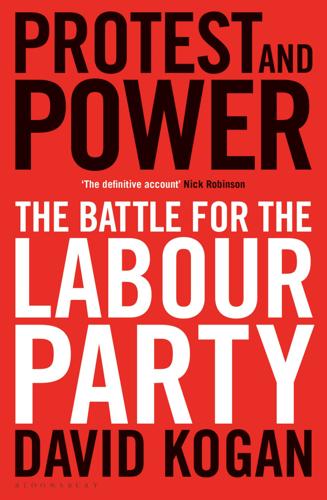
Protest and Power: The Battle for the Labour Party
by David Kogan · 17 Apr 2019 · 458pp · 136,405 words
has taken the left to new heights that were unimaginable even in 2014, but nothing in Labour can ever be taken for granted. Tony Benn, Neil Kinnock, Tony Blair, Gordon Brown and Ed Miliband can all attest to that. This is a political party that may see power again, with a most
…
joined the Labour party. All interviews in the sections after 1982 were undertaken by me from June to December 2018. Interviewee Joined the Labour party Neil Kinnock 1957 Louise Ellman 1962 Margaret Hodge 1963 David Triesman 1963 Peter Mandelson 1969 Ray Collins 1970 John McDonnell 1972 Jon Lansman 1974 Tony Blair 1975
…
the Labour movement. To their left was the Tribune group led in the 1960s by Michael Foot, Barbara Castle and Ian Mikardo, later joined by Neil Kinnock in the 1970s. Named after the Tribune newspaper, this group was closely aligned with the Campaign for Nuclear Disarmament and believed in redistributive economics driven
…
in parliament. In the 1960s Foot had refused a ministerial job under Harold Wilson, preferring to be the leader of the left from the backbenches. Neil Kinnock also refused a ministerial job under James Callaghan in the 1970s over Welsh devolution and public expenditure cuts. The Tribune Group was radical, non-Marxist
…
Lansman: Possibly only one of the crucial votes, but certainly one of those in favour of withdrawing, was that of Neil Kinnock. In many ways, Neil Kinnock can be held responsible for the fact that the NEC does not have ultimate control for drafting the manifesto: that is a significant crime. This
…
to tell the Tribune Group in advance of his decision to stand. John Silkin stood as a Tribune candidate against him. It was now that Neil Kinnock came to the fore. He had been elected MP in 1970 as a 28-year-old from South Wales firmly in the tradition of the
…
is asking too much. It was a clear threat that those who did not vote for Benn on the second ballot might not be reselected. Neil Kinnock, because he did not vote for Benn and abstained in the second ballot, was himself to be treated to cries of ‘Judas!’ when he appeared
…
who had remained and were led by Denis Healey and Roy Hattersley now had a platform. From the perspective of the Tribune left and particularly Neil Kinnock, it was a clear indication that their future lay in working against the Bennite left. For the Bennite left, it appeared to be a victory
…
party was between those people who put a premium on getting power in the Labour party and those on getting power for the Labour party’ Neil Kinnock, 2018 5 The Dream Team For those who like their politics raw, the 1983 general election is a collector’s item. Labour’s campaign plummeted
…
them off. Unfortunately, history does not record the Blair-Nellist chats over morning coffee. It was obvious that Michael Foot would stand down and that Neil Kinnock would run from the centre-left with Roy Hattersley from the centre-right. This new generation of Labour leaders would have a clear run against
…
and he was busy preparing himself for the leadership campaign during the general election. There must be a left candidate. Would Tony Benn have beaten Neil Kinnock in 1983? Jon Lansman, speaking in 2018, thought so: [Victory] was ripped away from us primarily because we fairly quickly lost control of the NEC
…
and a half million votes.’ This was an incredible statement given that Labour’s vote was the lowest in any election since 1935. In 2018 Neil Kinnock commented: Benn took comfort that even though we had been absolutely hammered, ‘Nine million people voted for socialism’. I wish he could have run. I
…
Eric Heffer for the leadership, who received 6 per cent of the vote, and Michael Meacher for the deputy leadership, who managed 28 per cent. Neil Kinnock won every section of the electoral college with 73 per cent of the vote overall. Roy Hattersley became his deputy. This ‘dream team’ worked in
…
as South Yorkshire President in 1973 and President of the NUM in 1981. It is difficult to know who hated Scargill more, Margaret Thatcher or Neil Kinnock. Kinnock was a lifelong member of the Labour party, Scargill had been in the party since 1962 but had previously been in the Young Communist
…
industry but, in truth, he was right. In 1983 there were 171 collieries. By 2015 there were none and Britain now imports its coal. For Neil Kinnock, the strike was cataclysmic. It started within six months of his leadership. It was at the heart of his emotional and personal commitment to the
…
to abolish it all together. The Local Government Act 1985 was narrowly passed in parliament, setting the end of the council for 31 March 1986. Neil Kinnock had watched the resurgent Thatcher defeat the miners and act decisively against the Labour party in local government. Tony Benn was back in parliament from
…
two years – the miners’ strike, the banning of the Liverpool and Lambeth councillors and the activities of Militant in Liverpool – came up and were defeated. Neil Kinnock argued against committing a future Labour government to retrospectively supporting miners sacked for criminal offences and returning the NUM’s sequestered funds. The vote was
…
out its extremes. Up stepped Peter Mandelson. In the New Labour years, Peter Mandelson famously defined himself as the third man. In the years under Neil Kinnock and in the run-up to the 1987 general election, he could justifiably claim to have been the essential guru of the Kinnock project. He
…
effect of trying to make the leader a cult for Labour as much as Thatcher was for the Conservatives. This was not totally successful given Neil Kinnock’s personality – he was far more a man of the movement than a cult. The makeover was based on deep research by the SCA, Mandelson
…
the start of the wilderness years. Second, the increasing power of the leadership at all levels of the party balanced with a countervailing pessimism over Neil Kinnock’s chances of winning. Finally, the rise of the modernisers who believed that a much more radical view had to be taken about Labour’s
…
the Conservative Association, so it became the Association of London Government. Speaking in 2018, he described how the pillars of the left were eroded by Neil Kinnock’s control, but there was always a glimmer of support. I never thought the left was over, never had done. We were certainly relatively isolated
…
. Ironically, as Lansman and McDonnell were isolated and reduced in influence, so the other side of the Labour party was starting to move away from Neil Kinnock. He had assembled a coalition of soft-right and soft-left to defeat the Bennite left. He had routed Militant, been the face of Labour
…
Revolution ‘We are not going to win despite our beliefs. I want to win because of our beliefs’ Tony Blair 1994 7 The New Generation Neil Kinnock’s defeat had been expected but was still devastating. Spencer Livermore, who was later a senior figure under Tony Blair, Gordon Brown and Ed Miliband
…
desire to win. None of which mattered when Smith was senior to both and looked a likely prime minister at the age of fifty-five. Neil Kinnock reflecting on this period in 2018: They had been unnerved by what for them was an unexpected defeat in 1992. They divided into the ‘one
…
three internal party institutions: the NEC which had been a continual thorn in the side of the Labour leadership in the 1970s but tamed under Neil Kinnock, and two new bodies created by John Smith, the Joint Policy Committee and the National Policy Forum. They were designed to move policy debate away
…
, gays and bisexuals. It was the first anti-LGBT law in 100 years. I became involved in that campaign. That brought me into contact with Neil [Kinnock] and members of the shadow cabinet, particularly because around at that time there was confusion in Labour as to whether they should support section 28
…
: The Good, the Bad and the Ugly ‘It was a title for victory, not for rule . . . they made an ideology of the absence of ideology’ Neil Kinnock 2018 ‘It’s wrong for Neil to say we didn’t have an ideology, that’s completely wrong. It was rooted in strong social democratic
…
the past: It was about reconnecting the Labour party both to its traditional values and to the people it was founded to represent. Prior to Neil Kinnock, the Labour party had gone on a sort of ideological holiday, where it indulged itself in all of that sort of dogma. This amused the
…
middle-class intellectual socialists but had absolutely nothing whatsoever to do with real people. Except some traditionalists like Neil Kinnock himself saw it as a rebrand without a real soul: It was a title for victory, not for rule . . . They made an ideology of the
…
their differences and why were they enough to kill the New Labour project? For those who were not natural Blairites it was a mixed picture. Neil Kinnock, who had spotted their talent and promoted both from the backbenches in the 1980s, saw them failing to apply the values of the traditional movement
…
would show you the seats that Labour was going to lose. Trying to make decisions in that environment was not easy. Miliband took soundings from Neil Kinnock, who had lived through this in 1992. There were arguments for staying on as a caretaker leader but it would be horrible, as Miliband described
…
action. In 1981, this led to one group walking out and setting up the SDP. The group of centre-left and centre-right led by Neil Kinnock and Roy Hattersley had learned their lesson and unified, stayed and fought, which led to New Labour ten years later. The generation that had grown
…
always remained firmly in the grip of the leader’s office, but within ten years, mandatory reselection and the electoral college had become irrelevant as Neil Kinnock, John Smith and Tony Blair took control of the party. The use of influence and party mechanics were only effective if the leadership was weak
…
’s left. For three years the left’s leadership has papered over its cracks. The fear of blowing it and the memory of 1983 when Neil Kinnock led the counter-revolution has kept them together. As John McDonnell said of the 2015 leadership win, the left had to: Get ready, start preparing
…
the ballot paper and he’s ended up as leader and potential prime minister. He has risen to the occasion at every stage. In 1983 Neil Kinnock was waiting in the wings to unite the soft-left and pragmatic right who had stayed after the SDP rebellion. There was no leader from
…
is that it has no new leader to replace Corbyn. There is a generational hole left by the wilderness years. The chances of a new Neil Kinnock uniting the party from the centre-left would look much more likely. 2023 would be 1983 all over again. Where will Momentum and the next
…
good old days, Labour party conference 1981, the unfashionable years. The GLC leadership in 1982 with a stylish John McDonnell. The counter-revolution, Glenys and Neil Kinnock with Peter Mandelson. A very fringe meeting, Jeremy Corbyn and Tony Benn. New Labour heading for victory with, from left to right, Ed Balls, Peter
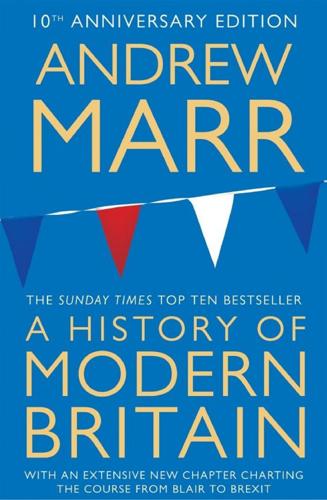
A History of Modern Britain
by Andrew Marr · 2 Jul 2009 · 872pp · 259,208 words
weatherproof, warm and well lit. People did complain about rabbit hutches or tin boxes but for many they were hugely welcome. The future Labour leader Neil Kinnock lived in one, an Arcon V, from 1947 until 1961, and remembered the fitted fridge and bathroom causing much jealousy: ‘Friends and family came to
…
supposed to scientifically measure intelligence. Among those who made it to the grammar schools, many hated being separated from their old friends – George Best and Neil Kinnock being among the innumerable examples of eleven-plus successes who then bunked off or frittered their school days in a mood of rebellion. Many of
…
setting up a new left-wing party based on the trade unions to be called the Social Democratic Party. One of them was the young Neil Kinnock, who would later as leader unleash a ferocious war on another ‘party within the party’. The title SDP would later be taken not by the
…
names by attacking Heath, one on picket lines and the other on the floor of the Commons. They were Arthur Scargill, the NUM boss, and Neil Kinnock. The intimidation of anyone who would not back Benn was getting worse though Benn himself sailed imperturbably through all that, apparently not noticing what was
…
seemed a match for her, as few men were. Among the Labour leadership, Denis Healey accused her of glorying in slaughter and the next leader, Neil Kinnock, got into trouble when, responding to a heckler who said that at least Margaret Thatcher had guts, he replied that it was a pity other
…
people’s villages and other counties’ pits, gave the confrontation an air of nobility and sacrifice which a mere wages dispute would not have enjoyed. Neil Kinnock, the new Labour leader, the son and grandson of Welsh miners, found it impossible to forthrightly condemn the aims of the dispute despite his growing
…
this on a reluctant Scottish party. It was a form of devolution strong enough to outrage many Labour left-wingers at Westminster, including the young Neil Kinnock, yet too weak to please the out-and-out home rulers in Scotland. A handful of politicians, officials and journalists left the Labour Party in
…
the second election of that year. Just as in Scotland, this produced a divided response among Labour in Wales. Should the nationalists be fought, as Neil Kinnock believed, or should they be paid to go away, with offers of devolution, as Michael Foot thought? By then, like Scotland, the client economy of
…
of the affection felt for Michael Foot that his swift retirement after that defeat was greeted with little recrimination. Yet it also meant that when Neil Kinnock won the subsequent leadership election he had a mandate for change no previous Labour leader had enjoyed. ‘Enjoyed’ is perhaps not the word. Kinnock had
…
election most observers thought he must lose. The economy was so badly awry, the pain of the poll tax so fresh, the Labour Party of Neil Kinnock now so efficiently and ruthlessly organized, that the Tory years were surely ending. Things turned out differently. Lamont’s pre-election budget had helped a
…
far, thrown up a high proportion of nuts, or at least of unsettled people with something to prove. John Smith was not a nut. After Neil Kinnock gave up in despair following Major’s victory in 1992, he was replaced by a placid, secure, self-certain Scottish lawyer with a very boring
…
war beyond the war would be something else entirely. Mediaocracy In the eighties and early nineties, Labour had been savaged by much of the press. Neil Kinnock had a terrible time. When Blair became leader the people immediately around Kinnock at the time, Mandelson and Campbell, remembered it well. Campbell had worked
…
. Margaret Thatcher, The Downing Street Years, HarperCollins, 1993. 3. Quoted in Young, op. cit. 4. Thatcher, op. cit. 5. See Robert Harris, The Making of Neil Kinnock, Faber & Faber, 1983. 6. Denis Healey, The Time of My Life, Michael Joseph, 1989. 7. See Max Hastings & Simon Jenkins, The Battle for the Falklands
…
lamp-post by police, 1986, and the notoriously violent poll-tax riot of 1990 in Trafalgar Square. 54. and 55. Two lost leaders: Labour’s Neil Kinnock attacking left-wing Militants at the party conference in 1985 and his successor John Smith, who would have become prime minister in 1997, but died
…
by police, 1986, and the notoriously violent poll-tax riot of 1990 in Trafalgar Square. 54 55 54. and 55. Two lost leaders: Labour’s Neil Kinnock attacking left-wing Militants at the party conference in 1985 and his successor John Smith, who would have become prime minister in 1997, but died
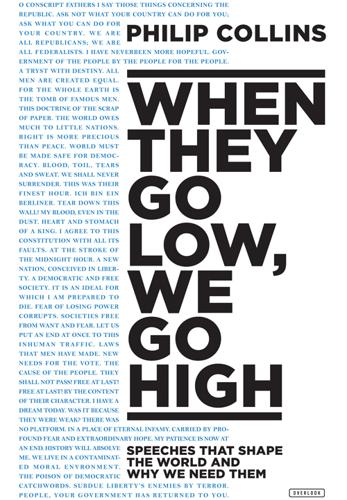
When They Go Low, We Go High: Speeches That Shape the World – and Why We Need Them
by Philip Collins · 4 Oct 2017 · 475pp · 156,046 words
Gómez (La Pasionaria): No Pasarán, Mestal Stadium, Valencia, 23 August 1936 Martin Luther King: I Have a Dream, The March on Washington, 28 August 1963 Neil Kinnock: Why Am I the First Kinnock in a Thousand Generations?, Welsh Labour Party conference, Llandudno, 15 May 1987 Maximilien Robespierre: The Political Philosophy of Terror
…
rare ones survive in the canon. The best recent example was made by the man who made Blair’s leadership of the Labour Party possible, Neil Kinnock. In Llandudno in 1987, Kinnock described the dream of equal life chances in poetic style. As a speaker, Kinnock is the apotheosis of the reformist
…
he stood up to the podium. By the time he stepped off he was a legend. NEIL KINNOCK Why Am I the First Kinnock in a Thousand Generations? Welsh Labour Party conference, Llandudno 15 May 1987 Neil Kinnock was the saviour of the Labour Party, at least temporarily. To anyone who grew up caring
…
take it further, but the governments that followed, led by Tony Blair and Gordon Brown, would have been inconceivable without the preparatory work done by Neil Kinnock. Kinnock was born in 1942 in Tredegar, Wales, to a coal miner and a district nurse. After a short spell as a tutor for the
…
to be persuasive. Thatcher was not really proposing to privatise schools and the audience in the country knows this. The accusation therefore says more about Neil Kinnock than it does about Margaret Thatcher. It is overwrought to reach straight for ‘wrong and wretched, squalid and brutal’ in the opening paragraphs. A verdict
…
policies on unilateralism, nationalisation, Europe, council-house sales and the closed shop were abandoned. It was still not enough and in 1992 Kinnock lost again. Neil Kinnock thus stands as something of a case study in the caveats that must be applied to the power of speech. Kinnock was the best public
…
is elusive and the quest goes on. Britain is still not a thoroughgoing meritocracy. Birth still accounts for too great a part of destiny, as Neil Kinnock pointed out. The time of perfect racial equality, of which Martin Luther King dreamt, has not arrived in Britain yet, let alone in America. But
…
recognise the equal moral worth of all individuals was argued, with the greatest passion, by William Wilberforce, Emmeline Pankhurst, La Pasionaria, Martin Luther King and Neil Kinnock. The full extent of what is grimly possible if dissent is silenced is there in the chilling words of Maximilien Robespierre and Adolf Hitler. Fidel
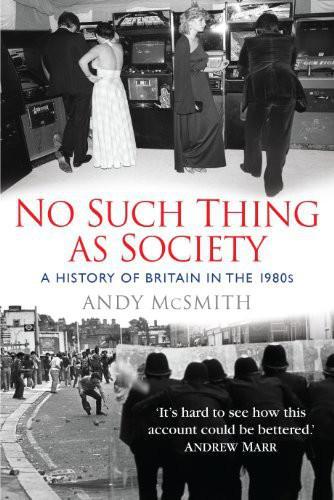
No Such Thing as Society
by Andy McSmith · 19 Nov 2010 · 613pp · 151,140 words
vicar’s daughter, that she was twenty-one years old, that the attack had happened at a vicarage in Ealing, close to the home of Neil Kinnock, the Labour leader, and that the vicar, whose name was Michael Saward, had described the victim as ‘a jewel in my crown’.28 The Sun
…
leading officers of the National Council of Civil Liberties. Harman was by then a Labour MP, and Hewitt was press secretary to the Labour leader Neil Kinnock. Massiter also revealed that Harry Newton had been an MI5 informer for so long that he was almost an agent provocateur. She had come out
…
of resigning from office to enjoy the freedom to speak out. Michael Foot held no government office until he was approaching the age of sixty. Neil Kinnock never held a ministerial office. Dennis Skinner would not even accept the chairmanship of a party committee. Others, including Eric Heffer, held office for a
…
deputy to compensate for denying him the leadership. As Benn went around collecting the necessary nominations to challenge Healey for the deputy leadership, word reached Neil Kinnock, Robin Cook and others of the Left whose loyalty was now to Foot, and who thought that a bitterly fought deputy leadership contest would be
…
mutual respect. The main casualty was Michael Foot, caught between two powerful figures backed by large well-organized factions. A small number of MPs, including Neil Kinnock, tried to carve out an independent position for him by putting up a third candidate, John Silkin, who gathered almost no support outside Parliament. The
…
England, against Tony Benn’s name. This made the result so close that Healey won by a margin of less than 1 per cent. If Neil Kinnock and a few others had voted for Benn, instead of abstaining, the history of the Labour Party would have been very different indeed. As it
…
am ashamed.’ Two trade unions, the TGWU and Association of Scientific, Technical and Managerial Staffs (ASTMS), kick-started the ensuing leadership campaign by declaring for Neil Kinnock. Since Tony Benn was among the many ex-MPs now looking for alternative employment, the election became a contest between Kinnock and Roy Hattersley, the
…
of very determined young black activists, especially in London. Patricia Hewitt, the former general secretary of the National Council for Civil Liberties, who had become Neil Kinnock’s press secretary in 1983, was lobbied by a group of recently enlisted party members, including Sharon Atkin, a Lambeth councillor, and Diane Abbott. They
…
separate black sections, which would be recognized as affiliated organizations entitled to be represented at every level of the party. Hewitt came close to persuading Neil Kinnock of the case, but the whole idea came up against a wall of opposition, not least from established leaders of the Asian communities who had
…
accepted an invitation to speak. Under pressure from young blacks who accused her of selling out, she declared: ‘I don’t give a damn about Neil Kinnock and a racist Labour Party.’33 The comment was caught on camera. By that evening, Atkin was national news; within days, she was disqualified as
…
, the Labour Party did not stand a chance, though during the campaign they tried to knock the shine off her image as a war leader. Neil Kinnock called for an inquiry into the sinking of the Belgrano and Denis Healey accused Thatcher of ‘glorying in slaughter’, but given that the Labour Party
…
the Conservative Party conference, just before an IRA bomb almost killed her, to order him to negotiate.25 Later that same month, when invited by Neil Kinnock to say that she still had confidence in MacGregor, she changed the subject.26 Arthur Scargill would say later that he believed that at this
…
a regime held responsible for the murder on a London street of a young policewoman. The news finally killed the fragile relationship between Scargill and Neil Kinnock. Without waiting to hear Scargill’s explanation, Kinnock pronounced that any off er of Libyan aid would be ‘an insult to everything the British Labour
…
one of the nation’s favourite and most self-destructive DJs. In February 1985, Billy Bragg, Peter Jenner and Andy Kershaw called in to see Neil Kinnock. The meeting went well, despite Jenner’s insistence on putting the case for legalizing cannabis. Labour was embarking on a ‘Jobs and Industry Campaign’, fronted
…
so popular that he made a spin-off record that was featured on Top of the Pops, and ‘loadsamoney’ became the catchphrase of the year. Neil Kinnock adopted it. Enfield, a Labour supporter, did not mind that, but he did not like it when the Sun took it up as a celebration
…
destroy politicians. When the Conservatives were re-elected in 1992, the newspaper boasted that it was ‘The Sun wot won it’. The defeated Labour leader, Neil Kinnock, who had refused to communicate with the Sun except through libel lawyers, seemed to agree. Detailed research suggested that about 11 per cent of Sun
…
£126,000, and disqualified from office. It was victory for central government over local government, for Thatcherism over municipal socialism and, by the by, helped Neil Kinnock to secure victory over the Bennite Left . Kinnock had emerged from the Left and was trying to steer the Labour Party back to the political
…
the cash duly ran out, and 31,000 staff were declared redundant. At this point, the main public-sector union, NUPE, turned decisively against Militant. Neil Kinnock seized the opportunity with a theatrical touch, during his long speech to the Labour Party conference in Bournemouth, when without warning he switched from attacking
…
supporters, while Labour’s support dropped from 38 to 36 per cent. Some Labour MPs wondered if these poll ratings might improve if they ousted Neil Kinnock and Roy Hattersley and elected a new leadership. The only credible alternative to Kinnock was John Smith, the shadow chancellor, but he refused to consider
…
for Labour to abandon the policy of unilateral nuclear disarmament that it had adopted in a blaze of publicity at the start of the decade. Neil Kinnock, who had been a unilateralist all his political life, announced a change of mind during 1988, then apparently reneged when the giant TGWU threatened to
…
they reckoned the many pledges would cost, and came up with a figure of £35 billion, which would have represented a substantial rise in taxes. Neil Kinnock put the powerful combination of John Smith and Gordon Brown in charge of the opposition Treasury team. Brown had just been elected the youngest member
…
grew into hostility by the Bennite left and those in the Labour Party for whom being faithful to their principles mattered more than winning elections. Neil Kinnock was sensitive to criticism from this quarter. He reacted angrily to being accused of ‘selling out’ for the sake of office. Brown, Blair and those
…
those whose careers he helped to advance, such as Kinnock, Brown and Blair, and feared and loathed by others. Any politician who ran foul of Neil Kinnock might suddenly find themselves being ridiculed and denigrated in the media, and would suspect that Mandelson had been at work. After the 1987 election, the
…
about, in 1991, socialism had been reversed in all the former Soviet satellite states of Eastern Europe and had begun to collapse even in Russia. Neil Kinnock, once an enthusiast for state ownership, then declared that the majority of the Labour Party had never really believed in it, ‘but they were the
…
that tearing down the Berlin Wall meant that the Communist danger had passed, as she demonstrated when she told an astonished House of Commons that Neil Kinnock was a ‘crypto Communist’.6 He burst out laughing. By the spring of 1990, it was obvious that the East German people wanted to share
…
of Britain joining the EU, or Common Market as it was then called. His deputy, Gordon Brown, was also committed to ERM membership; so was Neil Kinnock, after being persuaded of the case for membership by his economic adviser, John Eatwell. When Eatwell and Kinnock’s former press secretary, Patricia Hewitt, set
…
, where she clashed with European Commissioner Jacques Delors over his blueprint for EU integration. On her return, she delivered a report to the Commons, where Neil Kinnock accused her of setting the rest of Europe against her and dividing the Conservative Party. This set Thatcher off. Delors, she said, ‘wanted the European
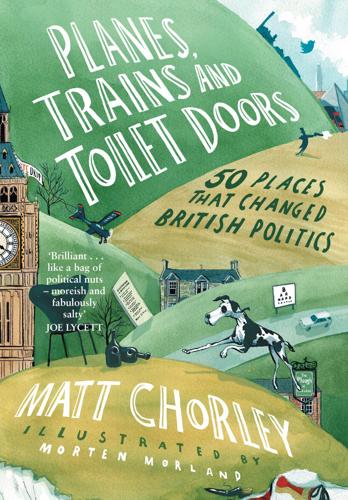
Planes, Trains and Toilet Doors: 50 Places That Changed British Politics
by Matt Chorley · 8 Feb 2024 · 254pp · 75,897 words
the face of the party’ and boasting he would win the next election. Less than eighteen months later he did, securing a surprise victory over Neil Kinnock’s Labour with 14,093,007 votes, the most ever cast for any party in a UK general election. Five years of economic and political
…
but two of their seats in the 1992 election. No disaster, then, but far from the breakthrough Ashdown craved. In the wake of the result Neil Kinnock had resigned, triggering a Labour leadership contest between Bryan Gould and John Smith. While that battle was being played out, Ashdown decided to insert himself
…
, so there is always a vacancy for an outgoing MP to take. It means that Sadiq Khan, Chris Huhne, David Davis, Tony Blair, Betty Boothroyd, Neil Kinnock, Roy Jenkins, John Stonehouse and John Profumo were all stewards of the Chiltern Hundreds (good pub quiz trivia for you) while the subaquatic Manor of
…
, Remain would have won the EU referendum, although it would not have happened because Ed Miliband would have won the 2015 election for Labour, repeating Neil Kinnock’s success in 1992. But after each failure the industry now has a bout of soul-searching inquests, tweaks the sampling and goes again. For
…
dusk, 11,000 people were cheering a live video feed inside the Sheffield Arena on the other side of the field. They cheered again when Neil Kinnock climbed out, and helped his wife Glenys down from the step. In fact they didn’t stop cheering and clapping and whooping and hollering for
…
it decided that we were going to be presented as the next cabinet. And since then I’ve often introduced myself as “My name is Neil Kinnock, I used to be the next prime minister” because it was so ridiculously overdone. But that didn’t matter as it happened, because it was
…
. Andrew Rawnsley’s sketch began: ‘Labour gave a party last night to celebrate winning the general election. The fact that seven campaigning days stand between Neil Kinnock and Number 10 was treated as an incidental detail.’ The front page of The Telegraph called it a ‘presidential-style rally’, while on page four
…
Heseltine, the environment secretary, and not a man known for his frugality, mocked the largesse: ‘The gleaming cars! The luxury coaches! The walkie-talkies for Neil Kinnock’s minders! I have never seen such luxury! The new Jerusalem paid for by £500-a-head nosh-ups for the London glitterati!’ The next
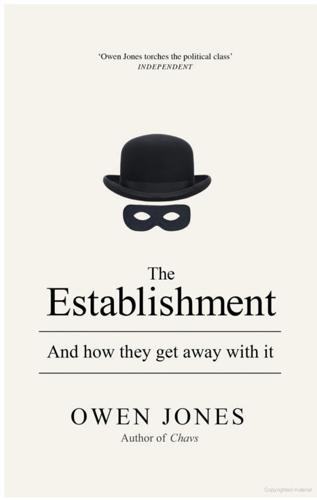
The Establishment: And How They Get Away With It
by Owen Jones · 3 Sep 2014 · 388pp · 125,472 words
1992, after thirteen years in the electoral wilderness – years of mass unemployment, union-bashing and the selling off of public assets – Labour and its leader Neil Kinnock were on the cusp of regaining power from the Conservative Party, led by Thatcher’s successor John Major. On 2 April – a week before voters
…
elite would come to pay homage to Britain’s financial kingpins. It is certainly true that, traditionally, Labour had an ambivalence towards the financiers. When Neil Kinnock became a Labour MP in the 1970s, Harold Lever, an ally of the then Labour Prime Minister Harold Wilson, told Kinnock: ‘You can easily rise
…
US elite. It was a new relationship that was not yet embraced by the entire political elite. Under the leaderships of Michael Foot and then Neil Kinnock, the Labour Party in the 1980s was committed to a defence strategy that included nuclear disarmament. This was seen as unacceptable in Washington. When I
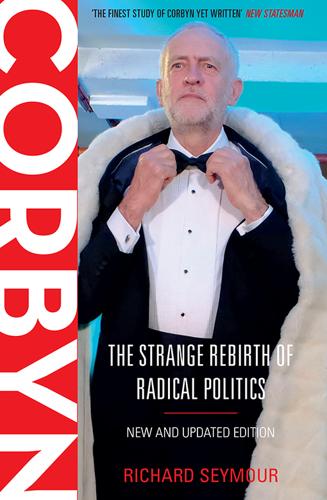
Corbyn
by Richard Seymour
the lowest it had gained since 1918, and prevented any recovery until Blair had finally effected the coup de grâce. The ‘modernisation’ project initiated under Neil Kinnock almost as soon as he was elected leader in 1983, continued by John Smith and consummated by Tony Blair, may have been forced on Labour
…
initially unveiled in 1983, proved ideal for a union leadership desperate to avoid conflict after the mauling visited on the miners. And it sufficed for Neil Kinnock, as he and his allies executed an often shambolic, unconvincing retreat from anything which could be considered a left-wing policy, from full employment to
…
most concentrated were working-class boroughs run by Labour councils. There, the leadership demanded that councils take an unyielding line against non-payment. Just as Neil Kinnock had advocated a ‘dented shield’ strategy for Labour councils struggling to fund local services in the face of rate-capping, urging that local authorities set
…
, race, immigration … It won’t matter if we win, the bankers and stockbrokers have got us already, by the fucking balls, laughing their heads off. – Neil Kinnock on Tony Blair2 It is, of course, too easy to pin all the blame on the Blairites for the enfeebled Labour Party that Jeremy Corbyn
…
fundamentally different kind of party to that which had been known. As the former Marxism Today intellectuals astutely argued, Labour had been ‘running, ever since Neil Kinnock’s election to the leadership, mainly against itself. Key speeches to party and trade union audiences have nearly always emphasised departures from traditional party thinking
…
been for the demoralisation of the entire party. Yet, in their way, they merely continued the lines of political and organisational change already signalled under Neil Kinnock, whose hoarding of leadership power and attempt to isolate and disempower the constituency and union base in the interests of ‘electability’ was the prototype upon
…
people who had never supported Corbyn’s leadership, and they were followed by a string of statements from Labour grandees, including former leaders such as Neil Kinnock and Ed Miliband, calling on Corbyn to ‘do the right thing’. A vote of confidence was arranged in which the majority of Labour MPs declared
…
cheered a report which it said showed that Corbyn had a ‘0% chance of winning the next general election’, and highlighted its former hate figure Neil Kinnock’s claim that Labour would not win again ‘in his lifetime’ if Corbyn won.38 Even more ominously, the television sofa-friendly Birmingham MP Jess
…
% chance of winning majority in the next general election, electoral report says’, Sun, 9 August 2016; Robert Fisk, ‘“Not in my lifetime”: ex-Labour leader Neil Kinnock warns there will not be a Labour government if Jeremy Corbyn is re-elected’, Sun, 18 September 2016. 39Jonathan Walker, ‘Jess Phillips says she could
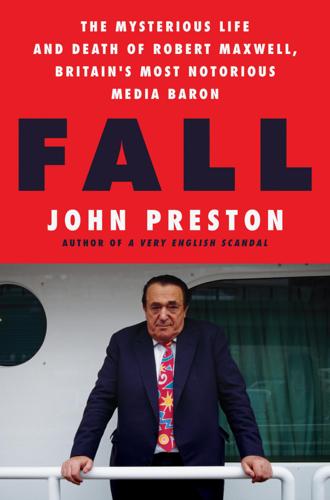
Fall: The Mysterious Life and Death of Robert Maxwell, Britain's Most Notorious Media Baron
by John Preston · 9 Feb 2021 · 374pp · 110,238 words
politics and government – a sense of direction and decision. These are the very qualities that have taken him far.’ As far as the Labour leader, Neil Kinnock, was concerned, ‘If Bob Maxwell didn’t exist, no one could invent him.’ Kinnock went on to pay tribute to Maxwell’s ‘basic convictions of
…
completely full of Heinz Salad Cream. There were bottles and bottles of it, stacked from floor to ceiling.’ Among the other guests that night were Neil Kinnock and his wife, Glenys. ‘I did go on that occasion, but frankly most of the time I found good reason not to go,’ Kinnock recalls
…
with an overwhelming sense of his own power? It was very difficult.’ After the fireworks were over, the Kinnocks took to the dance floor. When Neil Kinnock decided he’d done enough dancing, another guest stepped up to partner his wife: Peter Mandelson. Although it would be another few years before Mandelson
…
him to talk political turkey, press some important flesh and generally make his presence felt. But not everyone found it so pleasurable. The Labour leader, Neil Kinnock, always regarded the prospect of spending time with Maxwell with a mixture of gloom and apprehension. ‘While I knew I couldn’t afford to lose
…
him, they would also destroy the Labour Party. ‘He was really ranting. He kept saying that it was vitally important that I made sure that Neil Kinnock understood that. I remember there was a very narrow balustrade on the balcony and I had this feeling that Maxwell sort of wanted to tip
…
, Mr Maxwell showed the whole world that one person can move and influence events by using his own God-given talents and abilities.’ According to Neil Kinnock, Maxwell had been a ‘true day star of his age’. No one was quite sure what a day star was, but it was clearly intended
…
Grigg, Miriam Gross, Beverley Guest, Kate Hadley, Bill Hagerty, Max Hastings, Carolyn Hinsey, James Hoge, John Jackson, Tony Jackson, Gerald Jacobs, Peter Jay, David Jordan, Neil Kinnock, Julia Langdon, Ken Lennox, Magnus Linklater, Mike Maloney, Peter Mandelson, Flora McEvedy, Andy McSmith, Neil Mendoza, Peter Miller, Bob Miranda, Mike Molloy, Anna Moon, Brian
…
to Science, Technology and Education, Pergamon Press, 1988 Gerald Ronson, Leading from the Front: My Story, Mainstream, 2009 Interviews Gyles Brandreth Brian Cox Peter Jay Neil Kinnock Julia Langdon Peter Mandelson Gerald Ronson 21. Listening In Interviews John Pole 23. Crossing the Line Interviews Janet Fielding Roy Greenslade Simon Grigg Peter Jay
…
Simon Walters Ian Watson Television Panorama. The Max Factor, BBC1, 1991 32. A Long Way Down Interviews Alastair Campbell Dominic Carman Joe Haines Carolyn Hinsey Neil Kinnock John Pole 33. Lost Interviews Ian Maxwell Rabbi Feivish Vogel 34. Found Interviews John Jackson Ken Lennox 35. The First Autopsy Books Chester Stern, Dr
…
Iain West’s Casebook, Little, Brown, 1996 Interviews John Jackson Ken Lennox 36. A Hero of Our Time Interviews Conrad Black Joe Haines Max Hastings Neil Kinnock 37. The Second Autopsy Books Chester Stern, Dr Iain West’s Casebook, Little, Brown, 1996 Interviews Ken Lennox 38. The Four Horsemen Books Sir Roger
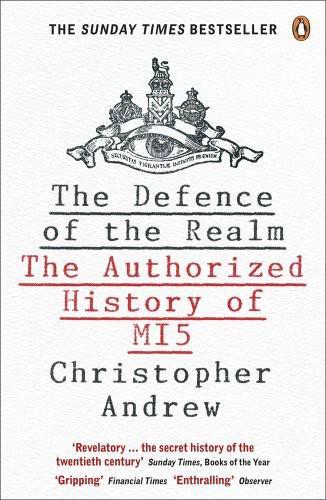
The Defence of the Realm
by Christopher Andrew · 2 Aug 2010 · 1,744pp · 458,385 words
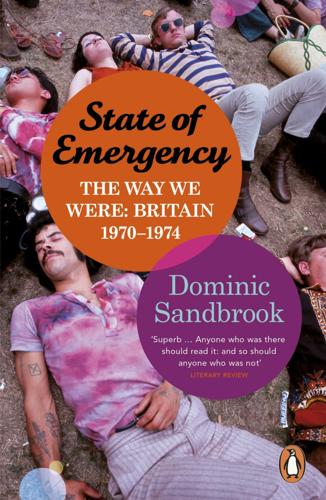
State of Emergency: The Way We Were
by Dominic Sandbrook · 29 Sep 2010 · 932pp · 307,785 words
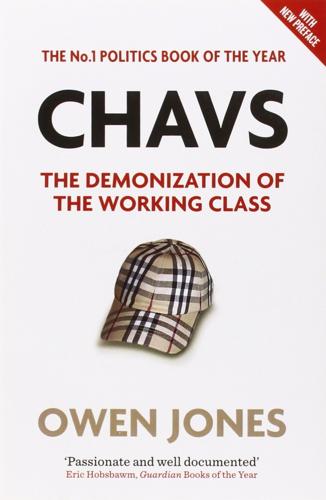
Chavs: The Demonization of the Working Class
by Owen Jones · 14 Jul 2011 · 317pp · 101,475 words
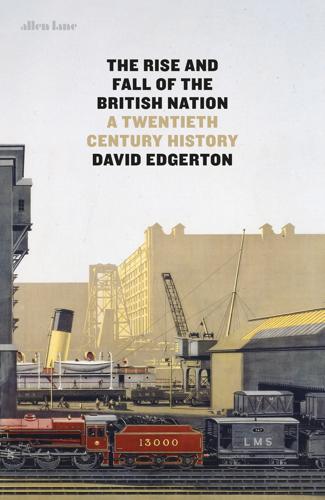
The Rise and Fall of the British Nation: A Twentieth-Century History
by David Edgerton · 27 Jun 2018
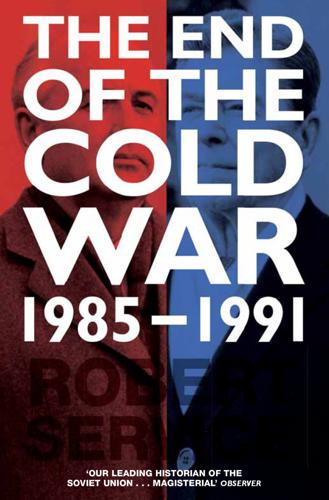
The End of the Cold War: 1985-1991
by Robert Service · 7 Oct 2015
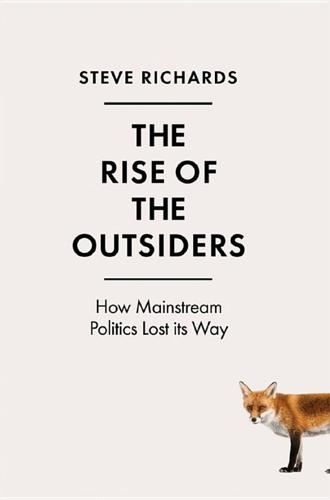
The Rise of the Outsiders: How Mainstream Politics Lost Its Way
by Steve Richards · 14 Jun 2017 · 323pp · 95,492 words
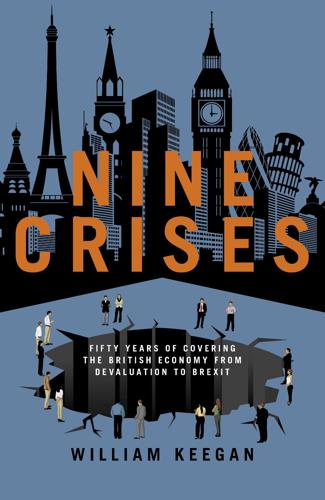
Nine Crises: Fifty Years of Covering the British Economy From Devaluation to Brexit
by William Keegan · 24 Jan 2019 · 309pp · 85,584 words
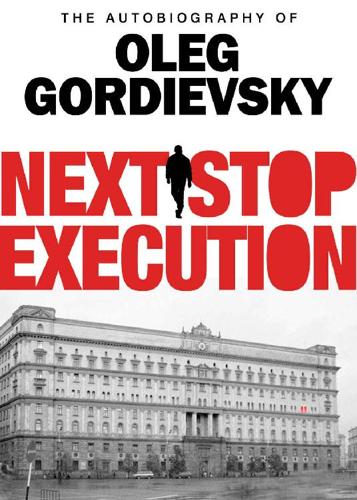
Next Stop Execution: The Autobiography of Oleg Gordievsky
by Oleg Gordievsky · 13 Apr 2015 · 438pp · 146,246 words
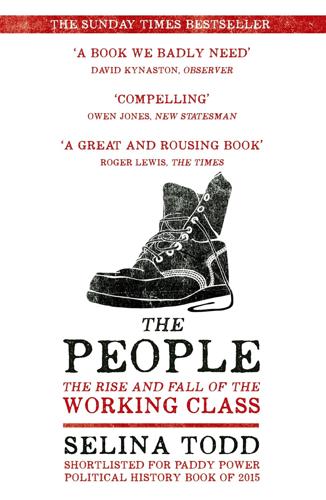
The People: The Rise and Fall of the Working Class, 1910-2010
by Selina Todd · 9 Apr 2014 · 525pp · 153,356 words
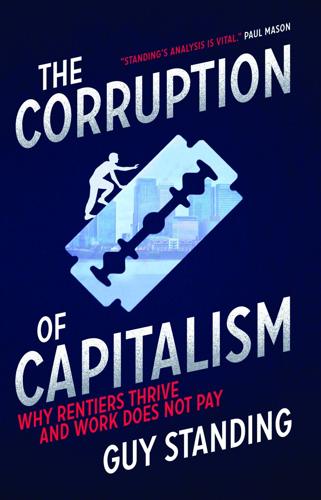
The Corruption of Capitalism: Why Rentiers Thrive and Work Does Not Pay
by Guy Standing · 13 Jul 2016 · 443pp · 98,113 words
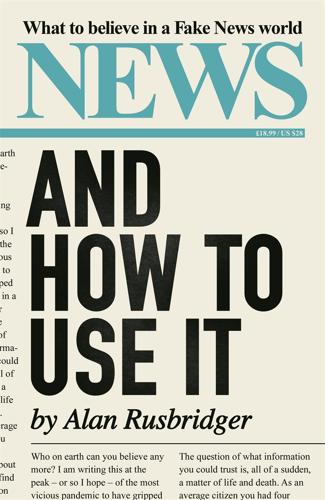
News and How to Use It: What to Believe in a Fake News World
by Alan Rusbridger · 26 Nov 2020 · 371pp · 109,320 words
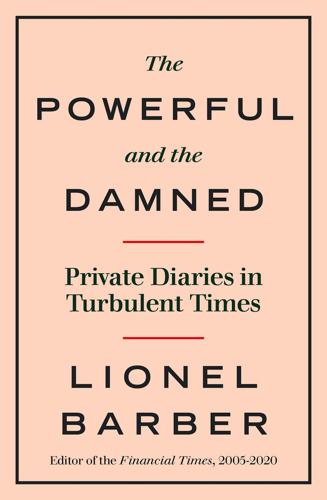
The Powerful and the Damned: Private Diaries in Turbulent Times
by Lionel Barber · 5 Nov 2020
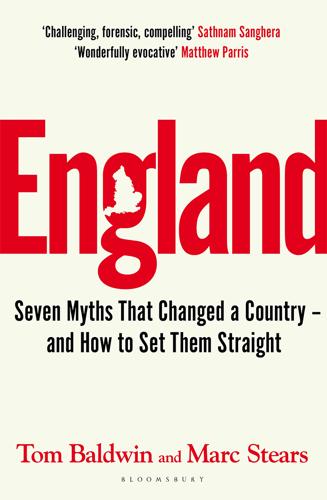
England: Seven Myths That Changed a Country – and How to Set Them Straight
by Tom Baldwin and Marc Stears · 24 Apr 2024 · 357pp · 132,377 words
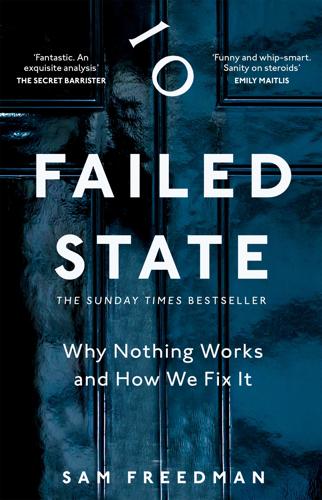
Failed State: The Sunday Times Bestselling Investigation Into Why Britain Is Struggling
by Sam Freedman · 10 Jul 2024 · 368pp · 101,133 words
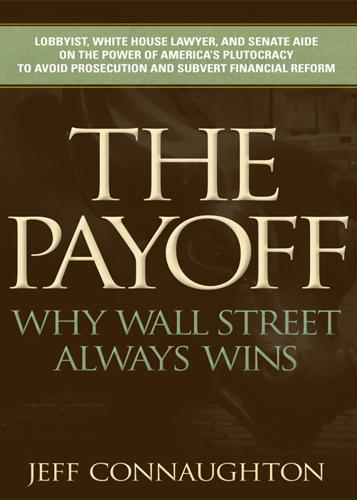
The Payoff
by Jeff Connaughton · 202pp · 66,742 words
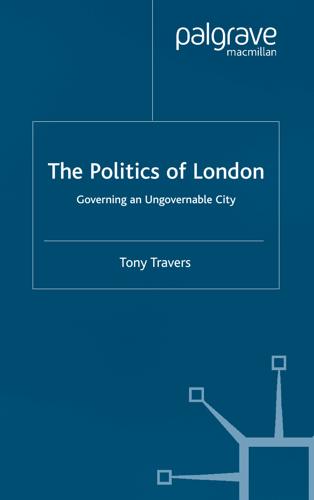
The politics of London: governing an ungovernable city
by Tony Travers · 15 Dec 2004 · 251pp · 88,754 words
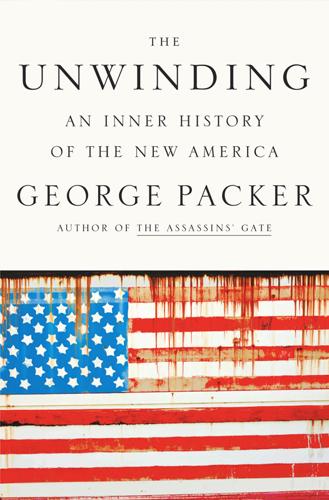
The Unwinding: An Inner History of the New America
by George Packer · 4 Mar 2014 · 559pp · 169,094 words
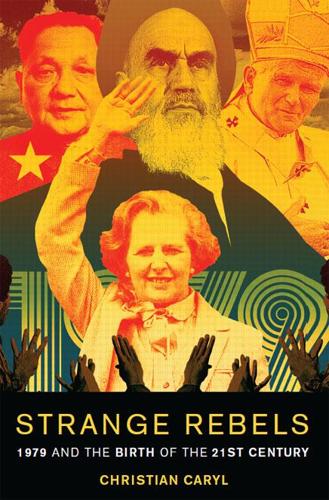
Strange Rebels: 1979 and the Birth of the 21st Century
by Christian Caryl · 30 Oct 2012 · 780pp · 168,782 words
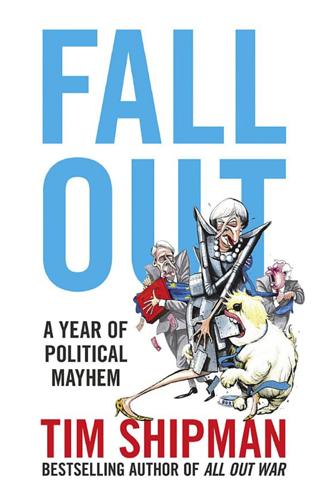
Fall Out: A Year of Political Mayhem
by Tim Shipman · 30 Nov 2017 · 721pp · 238,678 words
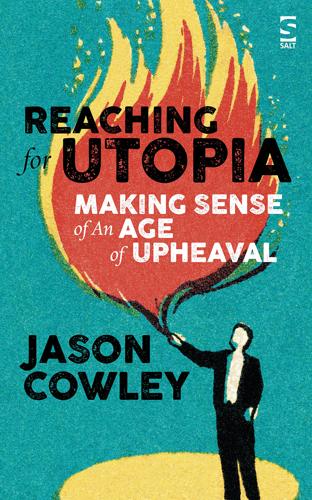
Reaching for Utopia: Making Sense of an Age of Upheaval
by Jason Cowley · 15 Nov 2018 · 283pp · 87,166 words
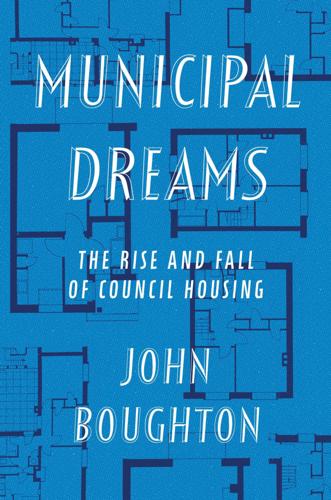
Municipal Dreams: The Rise and Fall of Council Housing
by John Boughton · 14 May 2018 · 325pp · 89,374 words
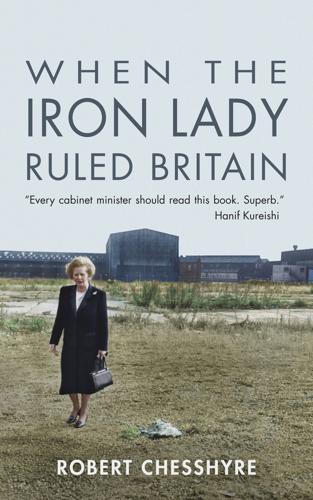
When the Iron Lady Ruled Britain
by Robert Chesshyre · 15 Jan 2012 · 434pp · 150,773 words
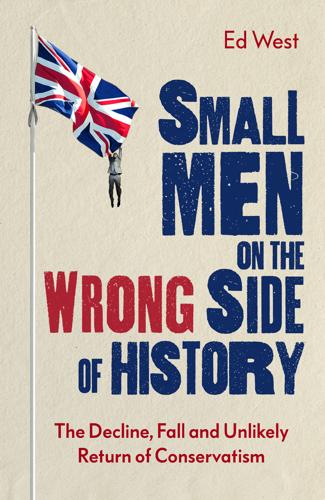
Small Men on the Wrong Side of History: The Decline, Fall and Unlikely Return of Conservatism
by Ed West · 19 Mar 2020 · 530pp · 147,851 words

Greater: Britain After the Storm
by Penny Mordaunt and Chris Lewis · 19 May 2021 · 516pp · 116,875 words

Sex Power Money
by Sara Pascoe · 26 Aug 2019 · 287pp · 92,194 words

GCHQ
by Richard Aldrich · 10 Jun 2010 · 826pp · 231,966 words

Inequality and the 1%
by Danny Dorling · 6 Oct 2014 · 317pp · 71,776 words
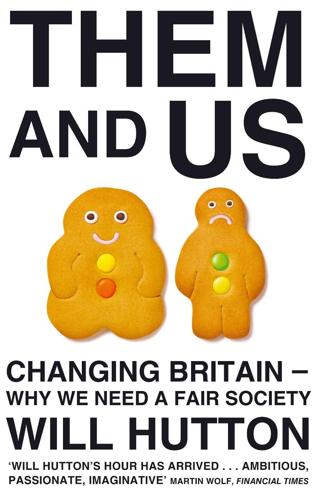
Them And Us: Politics, Greed And Inequality - Why We Need A Fair Society
by Will Hutton · 30 Sep 2010 · 543pp · 147,357 words
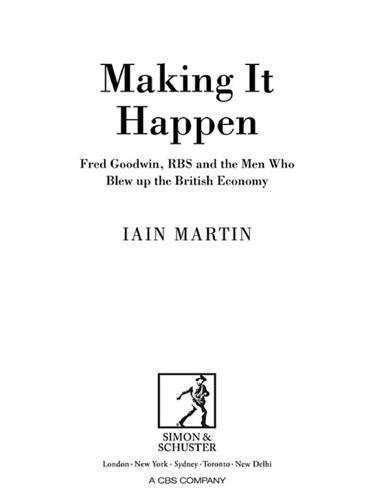
Making It Happen: Fred Goodwin, RBS and the Men Who Blew Up the British Economy
by Iain Martin · 11 Sep 2013 · 387pp · 119,244 words
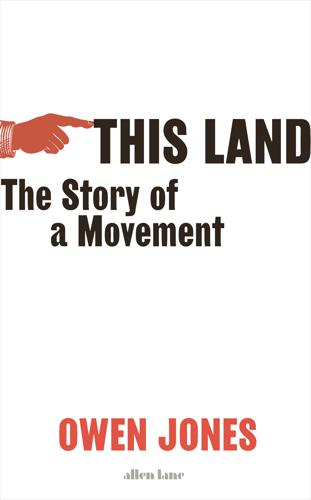
This Land: The Struggle for the Left
by Owen Jones · 23 Sep 2020 · 387pp · 123,237 words
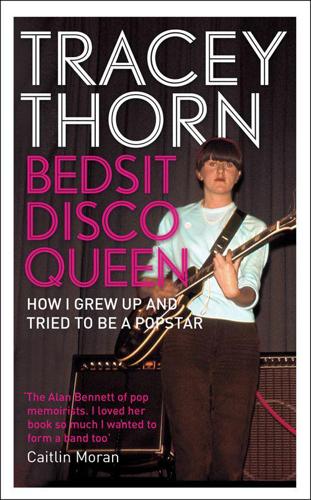
Bedsit Disco Queen: How I Grew Up and Tried to Be a Pop Star
by Tracey Thorn · 7 Feb 2013
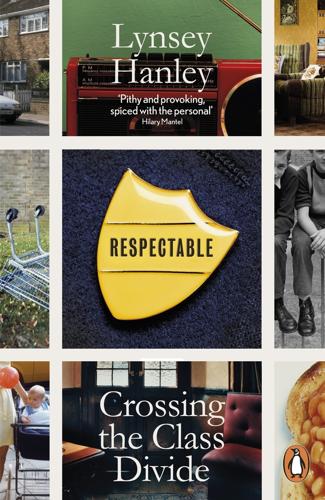
Respectable: The Experience of Class
by Lynsey Hanley · 20 Apr 2016 · 230pp · 79,229 words

The Extreme Centre: A Warning
by Tariq Ali · 22 Jan 2015 · 160pp · 46,449 words
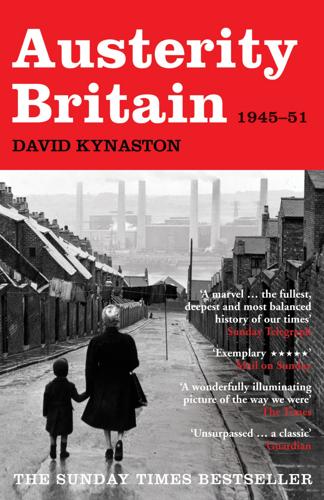
Austerity Britain: 1945-51
by David Kynaston · 12 May 2008 · 870pp · 259,362 words
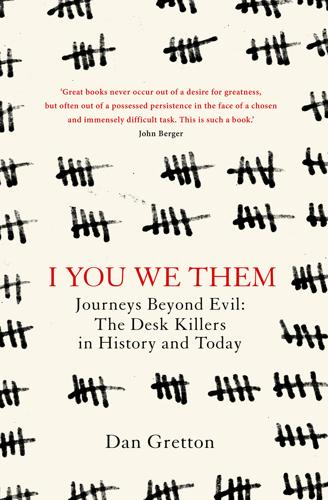
I You We Them
by Dan Gretton
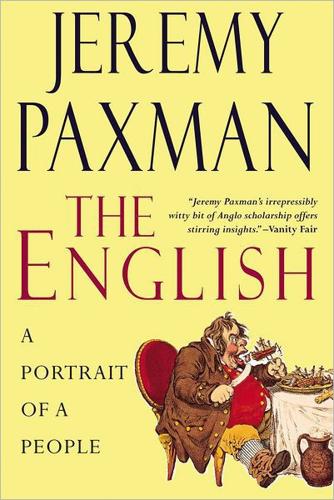
The English
by Jeremy Paxman · 29 Jan 2013 · 364pp · 103,162 words
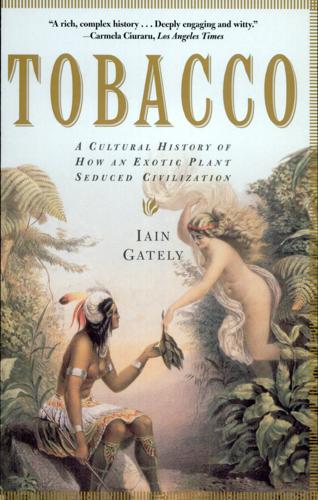
Tobacco: A Cultural History of How an Exotic Plant Seduced Civilization
by Iain Gately · 27 Oct 2001 · 434pp · 124,153 words
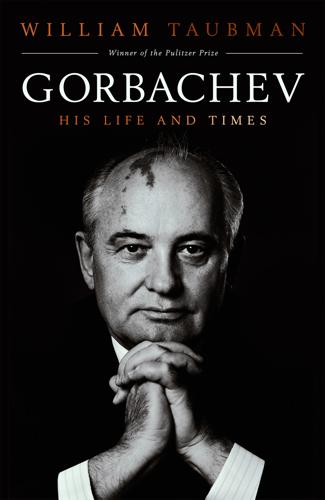
Gorbachev: His Life and Times
by William Taubman
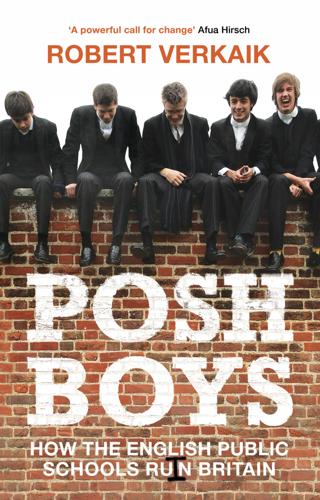
Posh Boys: How English Public Schools Ruin Britain
by Robert Verkaik · 14 Apr 2018 · 419pp · 119,476 words
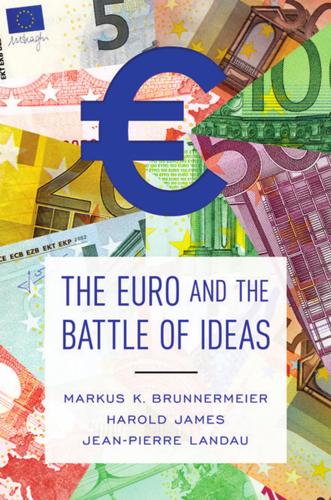
The Euro and the Battle of Ideas
by Markus K. Brunnermeier, Harold James and Jean-Pierre Landau · 3 Aug 2016 · 586pp · 160,321 words
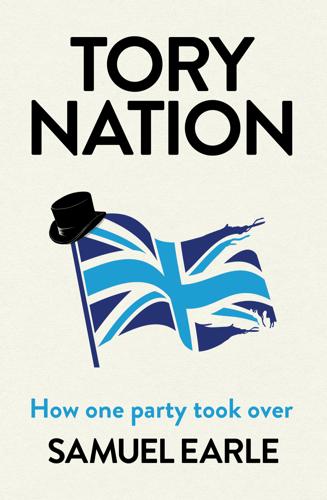
Tory Nation: The Dark Legacy of the World's Most Successful Political Party
by Samuel Earle · 3 May 2023 · 245pp · 88,158 words
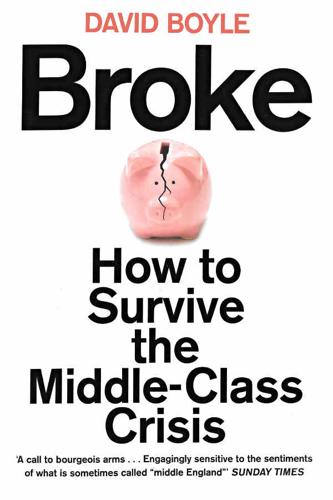
Broke: How to Survive the Middle Class Crisis
by David Boyle · 15 Jan 2014 · 367pp · 108,689 words
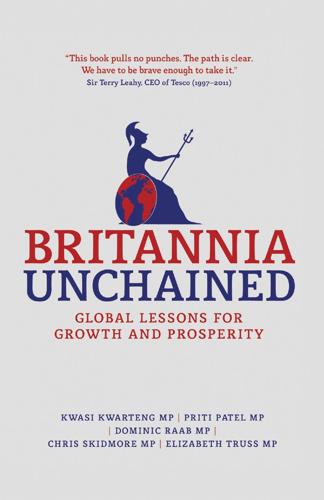
Britannia Unchained: Global Lessons for Growth and Prosperity
by Kwasi Kwarteng, Priti Patel, Dominic Raab, Chris Skidmore and Elizabeth Truss · 12 Sep 2012
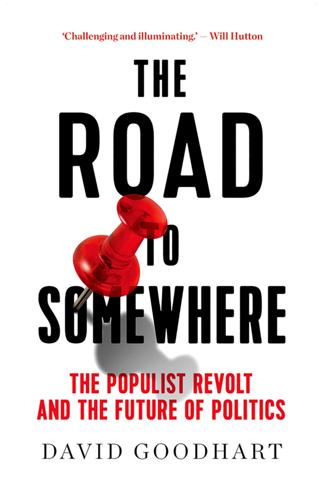
The Road to Somewhere: The Populist Revolt and the Future of Politics
by David Goodhart · 7 Jan 2017 · 382pp · 100,127 words
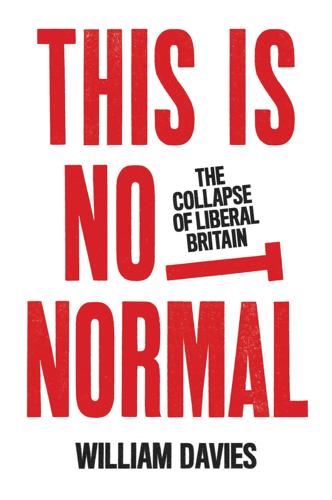
This Is Not Normal: The Collapse of Liberal Britain
by William Davies · 28 Sep 2020 · 210pp · 65,833 words
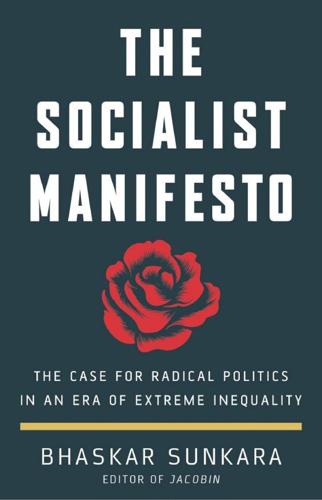
The Socialist Manifesto: The Case for Radical Politics in an Era of Extreme Inequality
by Bhaskar Sunkara · 1 Feb 2019 · 324pp · 86,056 words
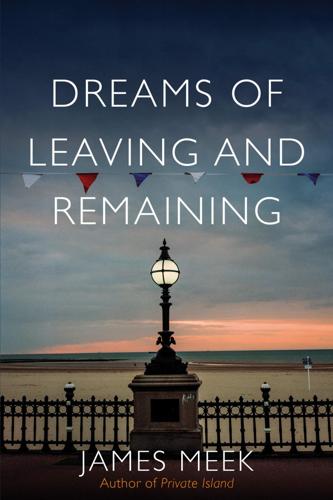
Dreams of Leaving and Remaining
by James Meek · 5 Mar 2019 · 232pp · 76,830 words
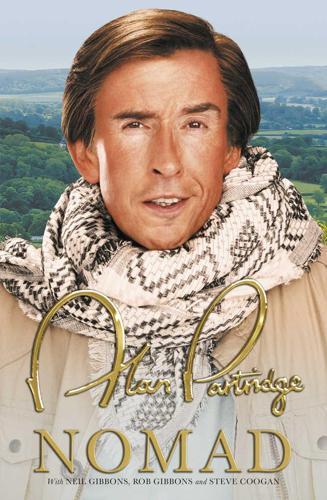
Alan Partridge: Nomad: Nomad
by Alan Partridge · 19 Oct 2016 · 245pp · 72,391 words
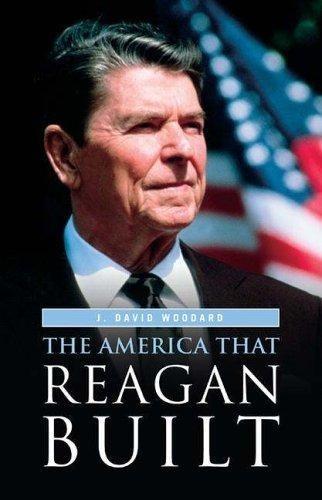
The America That Reagan Built
by J. David Woodard · 15 Mar 2006

The Rough Guide to England
by Rough Guides · 29 Mar 2018

Concretopia: A Journey Around the Rebuilding of Postwar Britain
by John Grindrod · 2 Nov 2013 · 578pp · 141,373 words
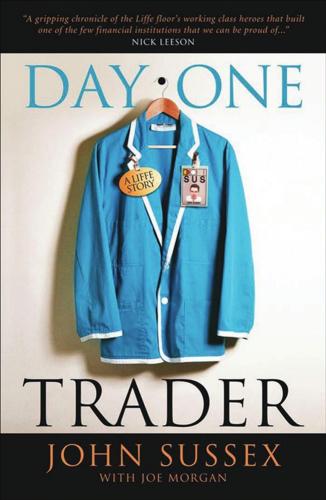
Day One Trader: A Liffe Story
by John Sussex · 16 Aug 2009
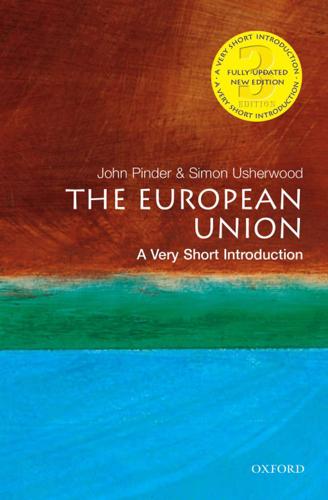
The European Union
by John Pinder and Simon Usherwood · 1 Jan 2001 · 193pp · 48,066 words

The Trains Now Departed: Sixteen Excursions Into the Lost Delights of Britain's Railways
by Michael Williams · 6 May 2015 · 332pp · 102,372 words
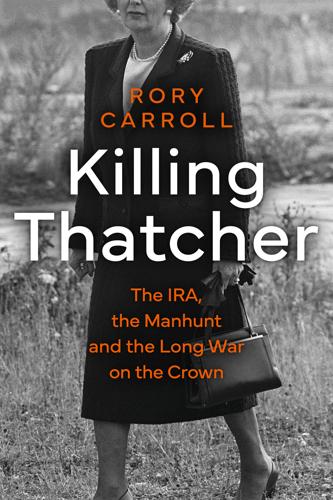
Killing Thatcher: The IRA, the Manhunt and the Long War on the Crown
by Rory Carroll · 15 Mar 2023 · 456pp · 128,481 words

Pompeii
by Robert Harris · 31 Oct 2003 · 309pp · 99,878 words
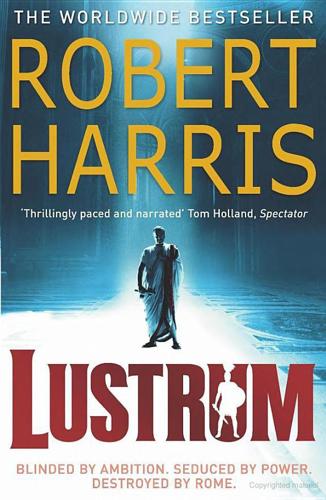
Lustrum
by Robert Harris · 6 Sep 2010 · 447pp · 142,527 words
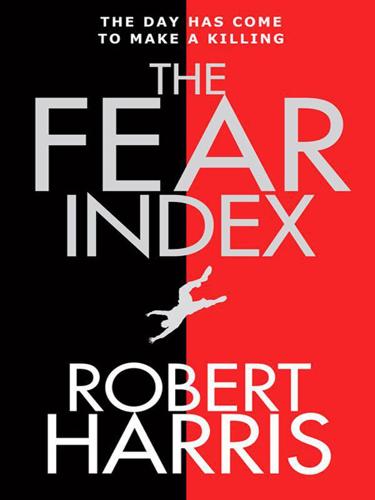
The Fear Index
by Robert Harris · 14 Aug 2011 · 312pp · 91,538 words
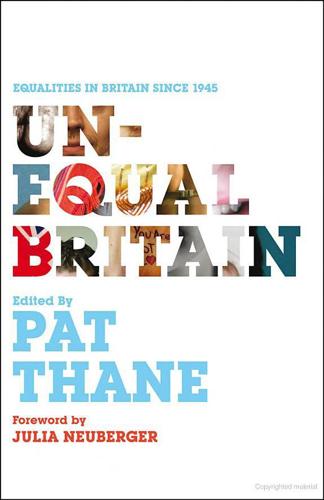
Unequal Britain: Equalities in Britain Since 1945
by Pat Thane · 18 Apr 2010 · 241pp · 90,538 words
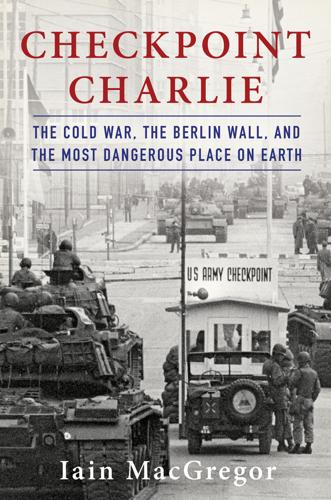
Checkpoint Charlie
by Iain MacGregor · 5 Nov 2019 · 401pp · 119,043 words
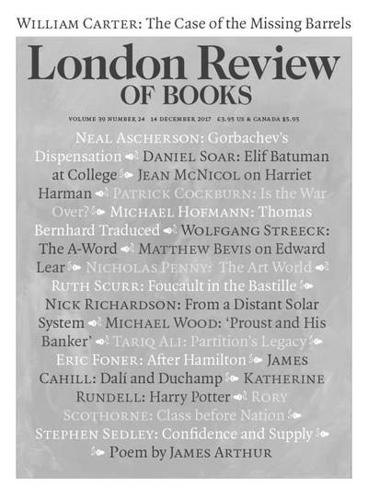
London Review of Books
by London Review of Books · 14 Dec 2017 · 174pp · 58,894 words
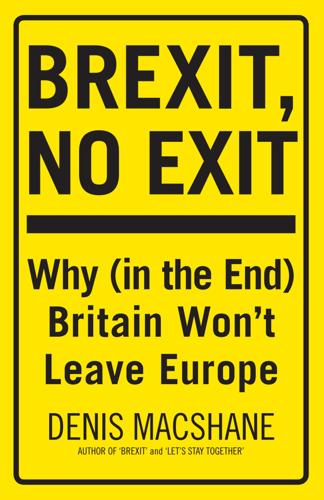
Brexit, No Exit: Why in the End Britain Won't Leave Europe
by Denis MacShane · 14 Jul 2017 · 308pp · 99,298 words
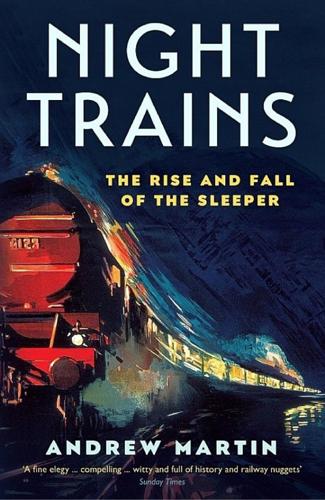
Night Trains: The Rise and Fall of the Sleeper
by Andrew Martin · 9 Feb 2017 · 238pp · 76,544 words
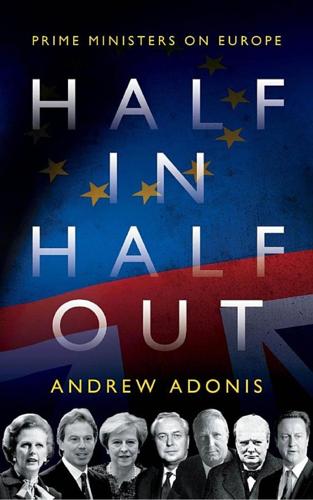
Half In, Half Out: Prime Ministers on Europe
by Andrew Adonis · 20 Jun 2018 · 235pp · 73,873 words